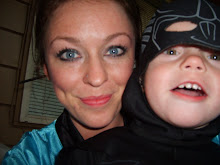“Visually He Took Me with Him”
Vocabulary Words:
muezzin - a muslim crier who calls the people to prayer.
diatibe - a bitter, abusive denunciation.
ablutions - a washing of the body, especially as a religious ceremony.
vagaries - 1) an odd or eccentric action 2) a whimsical or freakish notion; caprice.
"He swept aside the doubts about his ability to build the school that had nagged at him for the last year, as Abdul had briskly cleared the tea tray. Tomorrow it was time to begin" (Mortenson 59).
This quote portrayed not a saint, but a man who questioned his own abilities, a man who felt fear at such a daunting task, and proceeded in spite of that doubt. As human beings we are all capable of moving ever higher and achieving what others might label as impossible, perhaps even mad. We are equally capable of achieving the unachievable. No one is exempt from this.
"I used to assume that the direction of 'progress' was somehow inevitable, not to be questioned," she writes. "I passively accepted a new road through the middle of a park, a steel-and-glass bank where a 200-year-old church had stood. . .and the fact that life seemed to get harder and faster with each day. I do not anymore. In Ladakh I have learned that there is more than one path into the future and I have had the privilege to witness another, saner, way of life- a pattern of existence based on the coevolution between human beings and the earth" (Norberg-Hodge 112).
This directly challenged what I, and a fellow student, had been discussing in seminar one. Where we had been in agreement of how we as a developed country were better equipped at dealing with financial hardship on numerous levels, this boldly states where we are lacking, in comparison to an "underdeveloped" country. And yet somehow this viewpoint touches on the previous sentiment I mentioned, in seminar one, regarding people living directly in correlation to the fields they harvest and the animal they hunt or raise and having a greater appreciation because of it.
"On their warm, dry roofs, among the fruits of their successful harvest, eating, smoking, and gossiping with the same sense of leisure as Parisians on the terrace of a sidewalk cafe, Mortenson felt sure that, despite all that they lacked, the Balti still held the key to a kind of uncomplicated happiness that was disappearing in the developing world as fast as old-growth forests" (Mortenson 120).
Again, I find this topic to be of great interest and importance. Mortenson clearly feels compassion, as well as a deep kinship, with the people of Korphe, to question what latter affects might occur in their village post building a bridge connecting them to a world they've been cut off from. It's a lot like the essay we read, "Two Ways of Viewing the River", which left me questioning whether or not knowledge is beneficial or detrimental. I think it is both.
". . .and, finally, out of this tunnel of time zones and airless departure lounges to the swelter and frenzy of Islamabad airport. And here he was in leafy Islamabad's teeming twin city. . ." (Relin 57).
As soon as chapter six began, Relin had visually taken me with Mortenson to the city of Rawalpindi. This book is phenomenally written and as it is stated in the introduction, " I wrote the story. But Greg Mortenson lived it" (Relin 5), I get confused on who I am supposed to quote. If the statement being made is a direct quote from Mortenson I assume I would quote him, though if the statement is referring to Greg as "he" would I quote Relin? Thank you for your help in this matter. Heather Folden
Thursday, March 12, 2009
Subscribe to:
Post Comments (Atom)


No comments:
Post a Comment